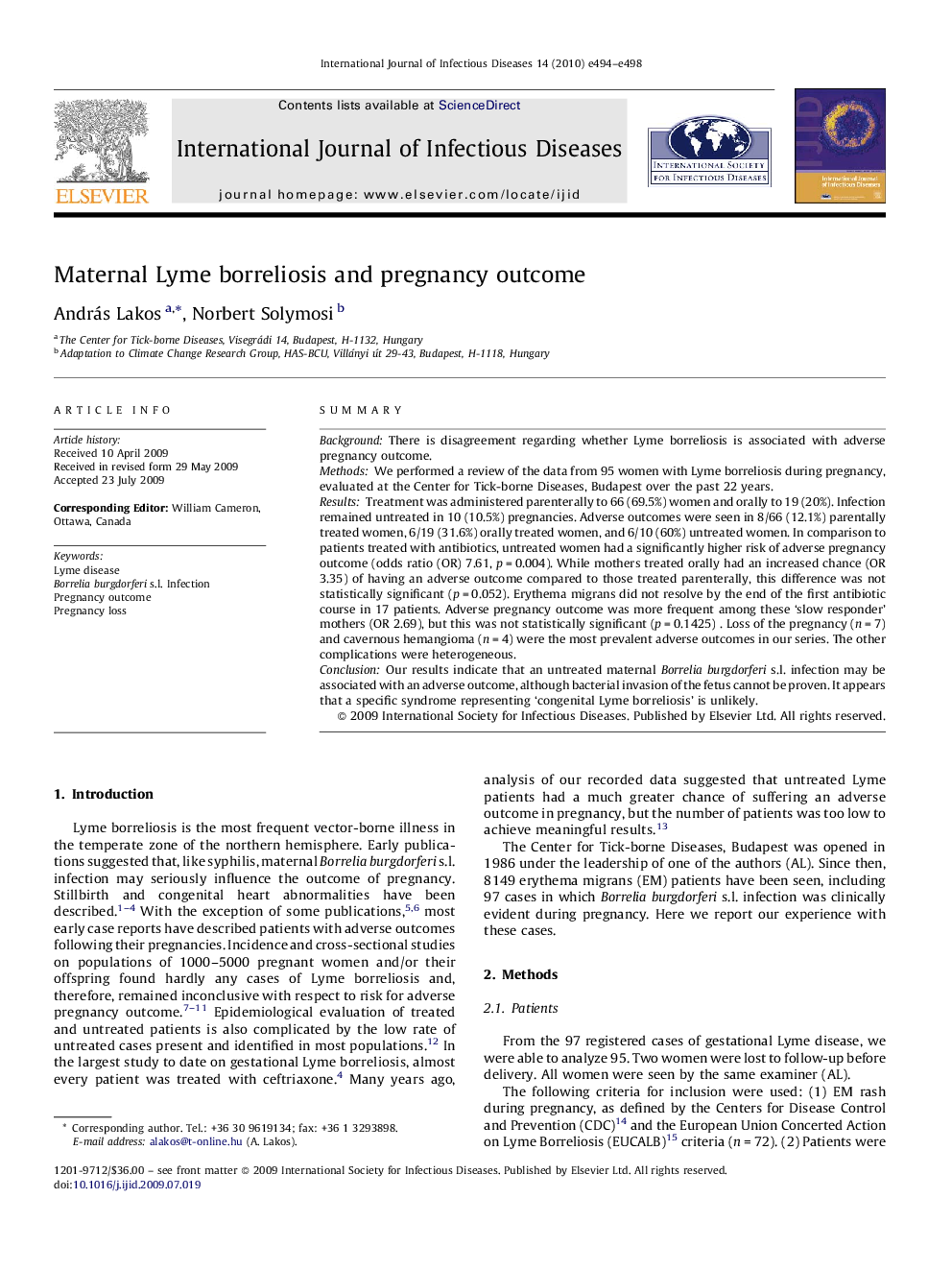| کد مقاله | کد نشریه | سال انتشار | مقاله انگلیسی | نسخه تمام متن |
|---|---|---|---|---|
| 3363501 | 1592123 | 2010 | 5 صفحه PDF | دانلود رایگان |

SummaryBackgroundThere is disagreement regarding whether Lyme borreliosis is associated with adverse pregnancy outcome.MethodsWe performed a review of the data from 95 women with Lyme borreliosis during pregnancy, evaluated at the Center for Tick-borne Diseases, Budapest over the past 22 years.ResultsTreatment was administered parenterally to 66 (69.5%) women and orally to 19 (20%). Infection remained untreated in 10 (10.5%) pregnancies. Adverse outcomes were seen in 8/66 (12.1%) parentally treated women, 6/19 (31.6%) orally treated women, and 6/10 (60%) untreated women. In comparison to patients treated with antibiotics, untreated women had a significantly higher risk of adverse pregnancy outcome (odds ratio (OR) 7.61, p = 0.004). While mothers treated orally had an increased chance (OR 3.35) of having an adverse outcome compared to those treated parenterally, this difference was not statistically significant (p = 0.052). Erythema migrans did not resolve by the end of the first antibiotic course in 17 patients. Adverse pregnancy outcome was more frequent among these ‘slow responder’ mothers (OR 2.69), but this was not statistically significant (p = 0.1425) . Loss of the pregnancy (n = 7) and cavernous hemangioma (n = 4) were the most prevalent adverse outcomes in our series. The other complications were heterogeneous.ConclusionOur results indicate that an untreated maternal Borrelia burgdorferi s.l. infection may be associated with an adverse outcome, although bacterial invasion of the fetus cannot be proven. It appears that a specific syndrome representing ‘congenital Lyme borreliosis’ is unlikely.
Journal: International Journal of Infectious Diseases - Volume 14, Issue 6, June 2010, Pages e494–e498